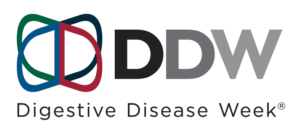Bethesda, MD (May 13, 2022) — Those with a normal body mass index (BMI) with non-alcoholic fatty liver disease (NAFLD) are more likely to have cardiovascular disease than those who are overweight or living with obesity, according to research selected for presentation at Digestive Disease Week® (DDW) 2022. Roughly 25 percent of adults in the U.S. have NAFLD, a term for various conditions of the liver that affect those who drink little to no alcohol.
This link to cardiovascular disease was found even though lean patients were less likely to have cirrhosis, diabetes, high cholesterol or high blood pressure.
“Our team had expected to see that those with a normal BMI would have a lower prevalence of any metabolic or cardiovascular conditions, so we were very surprised to find this link to cardiovascular disease,” said Karn Wijarnpreecha, MD, MPH, lead researcher of the study and transplant hepatology fellow at the University of Michigan. “Too often, we overlook NAFLD patients with a normal BMI because we assume their risk for more serious conditions is lower than those who are overweight. But this way of thinking may be putting these patients at risk.”
The main characteristic of NAFLD is having too much fat stored in the liver cells. It typically has no symptoms and can lead to other dangerous conditions, such as diabetes, cardiovascular disease, and cirrhosis of the liver.
While NAFLD is more common in people who are overweight or living with obesity, it is also found in people who have a normal BMI. Yet, there is little-to-no research done on this population’s associated conditions in relation to the condition.
Researchers conducted a retrospective cohort study of more than 10,000 adults diagnosed with NAFLD at the University of Michigan Hospital from 2012 to 2021 to compare the prevalence of cirrhosis, cardiovascular diseases, metabolic diseases, and chronic kidney disease among four classes of patients: lean (BMI= 18.5 to 24.9), overweight (BMI=25-29.9), class 1 obesity (BMI=30-34.9), and class 2-3 obesity (BMI=35-<40).
They found that compared to non-lean patients, lean patients had a lower prevalence of cirrhosis, diabetes mellitus, hypertension, and dyslipidemia; but a higher prevalence of peripheral vascular disease, cerebrovascular disease and any cardiovascular disease.
“In further analysis, we found that lean patients with NAFLD also had a significantly higher prevalence of cardiovascular disease, independent of age, sex, race, smoking status, diabetes, hypertension, and dyslipidemia,” Dr. Wijarnpreecha said.
Researchers plan to do additional studies that will follow patients long-term to determine whether lean patients have a higher risk of developing cardiovascular diseases as a result of NAFLD.
Given the unknown reasons behind the higher prevalence of cardiovascular diseases among lean patients with NAFLD, researchers encourage physicians not to overlook lean patients with NAFLD since they may be facing serious health consequences similar to patients who are overweight or living with obesity.
DDW Presentation Details
Dr. Wijarnpreecha will present data from the study, “Higher prevalence of cardiovascular disease among lean versus non-lean patients with nonalcoholic fatty liver disease despite lower prevalence of atherogenic risk and metabolic diseases,” abstract 325, on Sunday, May 22, at 8:30 a.m. PDT. For more information about featured studies, as well as a schedule of availability for featured researchers, please visit www.ddw.org/press.
###
Digestive Disease Week® (DDW) is the largest international gathering of physicians, researchers and academics in the fields of gastroenterology, hepatology, endoscopy and gastrointestinal surgery. Jointly sponsored by the American Association for the Study of Liver Diseases (AASLD), the American Gastroenterological Association (AGA) Institute, the American Society for Gastrointestinal Endoscopy (ASGE) and the Society for Surgery of the Alimentary Tract (SSAT), DDW takes place May 21 – 24 in San Diego, California and virtually. The meeting showcases more than 3,100 abstracts and hundreds of lectures on the latest advances in GI research, medicine and technology. More information can be found at www.ddw.org.





